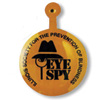Single-dose bioavailability of two extended-release lithium carbonate products -- Kirkwood et al. 51 (4): 486 -- American Journal of Health-System Pharmacy The single-dose bioavailabilities of two extended-release lithium carbonate products and an immediate-release product were compared. Nonsmoking healthy volunteers ages 20-31 (n = 12) were randomly assigned to one of three groups and given three treatments, each separated by a one-week period. The treatments, which were given to each group in a different sequence, consisted of three 300-mg immediate-release lithium carbonate tablets (Lithotab), two 450-mg extended-release lithium carbonate tablets (Eskalith CR), and three 300-mg extended-release lithium carbonate tablets (Lithobid). Blood samples were collected just before drug administration and at intervals up to 48 hours afterward. Urine was collected for 96 hours. Plasma and urine lithium concentrations were determined by flame-emission spectrophotometry, and lithium pharmacokinetic values and the cumulative urinary excretion of lithium were computed. Mean maximum plasma lithium concentration (Cmax) differed significantly among all three lithium carbonate products. Eskalith CR produced a 40% lower Cmax and Lithobid a 25% lower Cmax than Lithotab; Lithobid produced a 23% higher Cmax than Eskalith CR. Lithotab had a significantly shorter mean time to maximum plasma lithium concentration than either extended-release product. Mean cumulative urinary excretion of lithium did not differ significantly among the three products. Two extended-release lithium carbonate products were not bioequivalent when given in single doses to healthy volunteers.
LITHOTAB
lithium citrate
